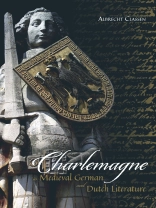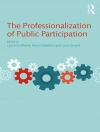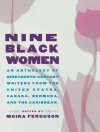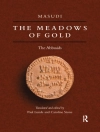Comprehensive survey of the legend of Charlemagne in the medieval German-speaking world.
The legend of the Frankish emperor Charlemagne is widespread through the literature of the European Middle Ages. This book offers a detailed and critical analysis of how this myth emerged and developed in medieval German and Dutchliteratures, bringing to light the vast array of narratives either idealizing, if not glorifying, Charlemagne as a political and religious leader, or, at times, criticizing or even ridiculing him as a pompous and ineffectual ruler. The motif is traced from its earlest origins in chronicles, in the
Kaiserchronik, through the
Rolandslied and Der Stricker’s
Karl der Große, to his recasting as a saint in the
Zürcher Buch vom Heiligen Karl.
ALBRECHT CLASSEN is University Distinguished Professor of German Studies at the University of Arizona; he received the title of Grand Knight Commander of the Most Noble Order of the Three Lions in 2017, in recognition of his outstanding service to German studies.
Tabela de Conteúdo
Introduction: From the Early Middle Ages to the Late Sixteenth Century
1. The
Kaiserchronik: The Emergence of Charlemagne in Chronicle Literature
2. Priest Konrad’s Rolandslied and the Glorification of Charlemagne
3. The Stricker’s
Karl der Große: Adaptation and Innovation of the Myth of Charlemagne in the Thirteenth Century
4. The Myth of Charlemagne in Fourteenth-Century German Literature:The
Karl Meinet Compilation
5. Elisabeth von Nassau-Saarbrücken’s
Königin Sibille: The Double-Edged Sword in the German and the Dutch Prose Version
6. Charlemagne in the Dutch and German Tradition of
Malagis
7. Charlemagne as Saint: The Religious Transmutation of the Early Medieval Myth. The
Zürcher Buch vom Heiligen Karl (Fifteenth Century)
8. Charlemagne in Middle Dutch and Middle Low German Literature
Afterword
Bibliography
Sobre o autor
ALBRECHT CLASSEN is University Distinguished Professor of German Studies at the University of Arizona; he received the title of Grand Knight Commander of the Most Noble Order of the Three Lions in 2017, in recognition of his outstanding service to German studies.












